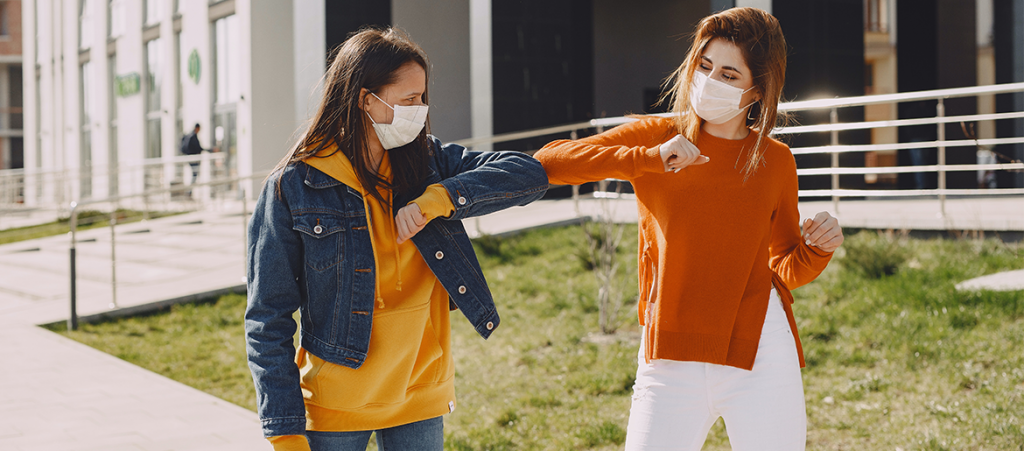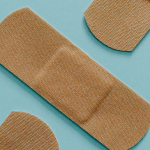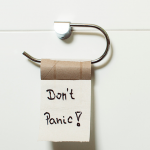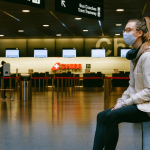
According to the latest ABS data, 16% of people aged 16-64 are unsure if they’ll get a COVID-19 vaccine in Australia when it becomes available to them. So, as part of our Healthy Headlines commitment this guide will answer some of the common questions around vaccination. They’re all questions the Zee Feed team has been asked directly or are common themes we’re seeing in the national discussion.
This is a guide to help the vaccine hesitant make their decision – whether that’s you, or the loved ones you want to provide with clear, digestible information. At Zee Feed, we don’t judge anyone for feeling scared or confused about having a COVID-19 vaccination. In fact, it’s completely understandable – we’ve all been bombarded with very technical medical and science information over the past 18 months, a steep learning curve for the vast majority! On top of that, some people acting in bad faith have turned science into politics.
By pulling together answers to these questions all on one page, we hope to provide clarity among the confusion. We’ll continue to add to and update the information as it evolves.
Last updated: 4 August 2021.
Only peer-review, published studies are included in the information below. The media will often report on studies that have not yet been peer-reviewed – we have made an editorial decision not to do that here, to give you confidence in the information provided.
Will the vaccine stop me getting or passing on COVID-19?
How do the risks of the vaccine compare to the risks of COVID-19 in Australia?
Does the vaccine affect pregnancy or fertility?
Will we need booster shots later on?
Will vaccinations end lockdowns? How many do we need to stop lockdowns?
How much protection does each vaccine provide?
What is the death rate from COVID-19 in Australia?
Why were the vaccines approved so quickly?
What is a breakthrough case? Can I get COVID after being vaccinated?
What is ‘long COVID’? Is it dangerous?
How do vaccines impact whether I get or pass on COVID-19?
The vaccines will reduce your likelihood of getting and of transmitting COVID-19. It will not protect you 100%, unfortunately. The main purpose of the vaccine is to reduce the chance you will have a severe case of the disease – you’re less likely to end up in hospital, or die.
Here is how much vaccination reduces your chance of getting COVID, being hospitalised from it, dying from it, or passing it on to others:
| Getting It* | Passing It On^ | Hospitalisation* | Death* | |
| Single Dose | Up to 78% less likely | Up to 50% less likely | Up to 89% less likely | Up to 93% less likely |
*Results from a study in Italy: Risk of SARS-CoV-2 infection and subsequent hospital admission and death at different time intervals since first dose of COVID-19 vaccine administration, Italy, 27 December 2020 to mid-April 2021
^Data analysis from England: Effect of Vaccination on Household Transmission of SARS-CoV-2 in England
How much protection does each vaccine provide?
For the vaccines currently or soon expected to be available in Australia, here is how they reduce your chance of getting COVID-19:
| AstraZeneca | Pfizer | Moderna | ||||
| Dose 1 | Dose 2 | Dose 1 | Dose 2 | Dose 1 | Dose 2 | |
| OG COVID | 49%^ | 75%^ | 78%* | 97%* | 91%* | 99%* |
| Delta variant | 30%^ | 67%^ | 36%^ | 88%^ | – | – |
*Results from a study of US healthcare workers: Effectiveness of Messenger RNA Coronavirus Disease 2019 (COVID-19) Vaccines Against Severe Acute Respiratory Syndrome Coronavirus 2 (SARS-CoV-2) Infection in a Cohort of Healthcare Personnel
^Results from a study in England: Effectiveness of Covid-19 Vaccines against the B.1.617.2 (Delta) Variant
How do the risks of the vaccine compare to the risks of COVID-19?
All the below are based off the numbers in Australia, for consistency:
| Risk of… | Likelihood |
| Death if you get COVID-19 | 1 in 35 |
| Getting COVID-19 in Australia | 1 in 750 |
| Myocarditis or Pericarditis with Pfizer (heart inflammation conditions) | 1.65 in 100,000* |
| Thrombosis with thrombocytopenia syndrome (TTS) with AZ (blood clots) | 1.42 in 100,000 |
| Guillain-Barre Syndrome (GBS) with AZ | 1 in 100,000* |
| Immune thrombocytopenia (ITP) with AZ | 1 in 200,000* |
*Notes: These are the suspected cases, not confirmed cases of Myocarditis/Pericarditis, GBS and ITP.
It is difficult to link Myocarditis/Pericarditis to the vaccine, as they are common with COVID-19 itself.
A link between GBS and AZ is not established. GBS is associated with immunisations, like the flu vaccine.
A link between ITP and AZ is not established.
All data from the TGA Vaccine Safety Report 22 July 2021
What is the death rate from COVID in Australia?
Currently 2.77% – that means for every 100 people who get COVID in Australia, 2.77 will die. Worldwide, the rate is 2.14%.
Death Rate = Number of Deaths / Number of Confirmed Cases
Does the vaccine affect fertility? Is it safe if I’m pregnant or trying to get pregnant?
Fertility: The COVID-19 vaccine does not affect fertility. There are no studies with evidence to ‘disprove’ this, because there is nothing to disprove.
However, there is evidence that concerns about the COVID-19 vaccine and fertility were started and spread by anti-vax campaigners, trying to leverage off the normal fears, worries and anxiety people who are trying to get pregnant have. It’s a classic example of a misinformation or ‘fake’ news campaign, taking advantage of people who are going through an emotional and delicate experience (pregnancy and fertility).
Pregnancy: A US study of over 35,000 pregnant women who received an mRNA vaccine (either Pfizer or Moderna) found the vaccine had no negative effect on them, their pregnancy, or their babies – the rate of health births for this group is consistent with pre-COVID (2019 and prior) rates. An ongoing study following up with the babies as they grow is being conducted to ensure no further issues arise.
In Australia it is recommended that pregnant women get vaccinated with Pfizer as soon as they can, as being pregnant increases the risk of having severe COVID-19 illness. Of course, the best thing to do is have a conversation with your doctor about the specifics of your pregnancy and situation.
I’m worried the vaccines were developed too quickly & might still be unsafe…
The COVID-19 vaccines were ready and available for the public much quicker than other medical treatments or vaccines for three reasons:
- The scientific community has been working on treatment for coronaviruses (a category of viruses) since as early as the SARS outbreak in 2003. They were not starting from scratch!
- They were able to cut out the most time consuming, non-scientific parts of the development and testing process – basically admin, like applying for funding and grants. This is how efficient the process could be for all diseases with global collaboration and lots of funding.
- While emergency approval was originally granted in late 2020, AstraZeneca and Pfizer now have provisional approval in Australia.
Read more in our article on the speed of the vaccine approval process.
Can the vaccines alter my DNA?
No. DNA (deoxyribonucleic acid) stores and communicates your genetic information. RNA (ribonucleic acid) makes proteins based on the info your DNA gives it. It acts as a messenger – that’s literally what the “m” in mRNA stands for.
mRNA from vaccines don’t ‘enter’ the DNA at all. They deliver a different set of instructions so that your body knows to produce an altered version of the spike protein required to fight COVID-19.
This visual explanation on TikTok from molecular chemist Kane Fox shows the basics of how DNA and mRNA work with each other.
What are ‘breakthrough cases’? Will I get COVID after being fully vaccinated?
A ‘breakthrough case’ is when a person who has already been vaccinated gets COVID-19. This is something that is expected to happen as a vaccine reduces but does not eliminate your chance of getting the virus.
In the US, only 0.01% of all COVID-19 cases from January to April 2021 were breakthrough cases. Breakthrough cases are much less likely to end up in hospital (0.0036%) or die (0.0007%), according to the US data. Australia hasn’t made data on breakthrough cases available yet.
So while you may still get COVID-19 after being vaccinated, you will still have significant protection from the worst of the disease. This is why many places like the US and UK are recommending that people who have been vaccinated continue to take protective measures (e.g.: wearing a mask) in public places while there are outbreaks.
Will we need ‘booster jabs’ of the COVID vaccine later on?
Maybe – we don’t know yet. Research is underway to determine if a vaccine booster shot will be needed (i.e.: if vaccine immunity wears off over time) and if so, when it would be needed (i.e.: how long immunity from full vaccination lasts, if not forever).
What is ‘long COVID’?
Long COVID is a term used to describe illness and symptoms that some people continue to experience long after they would normally expect to have recovered from COVID-19. A study from the University of New South Wales found about 5% of participants experienced symptoms three months after infection – much longer than the standard recovery time (80% recover within one month).
Long COVID is a concern for two reasons:
- Of course, anyone who is sick wants it to be over as quickly as possible!
- While we know that some people take much longer to recover, we don’t know why that is happening nor what long-term effects it will have on those people. That’s why many researchers are now investigating long COVID.
Will high vaccination rates end lockdowns? How many people need to get vaccinated?
The Government has not released a vaccination target yet. Modelling shows that having between 75% and 80% of the population vaccinated will give us the best protection. Keep an eye on our vaccine tracker here.
Public health decisions around vaccinations, lockdowns and border closures are made based on assessing the risks. All three are linked to each other – here’s how:
- In Australia the decision to close national borders in 2020 was to protect the nation from the high rates of COVID-19 in other countries. This successfully limited the number of cases in Australia, therefore reducing the risk of COVID-19 here. It is a temporary safety net.
- Vaccinations, like all medical treatments (even a Panadol tablet), have potential side effects that pose a risk to those who receive it. With the borders closed, the potential side effects seem more risky than actually getting COVID. This creates a situation where people feel comfortable to wait for a “safer” vaccine, because case numbers are low. Ultimately, this keeps vaccination numbers low.
- When an outbreak does occur the risk of COVID becomes high again because not many people are vaccinated (see point 2.) Lockdowns must be used to protect people, because the temporary border closures safety net discouraged Australia from taking up long-term protections.
We will keep looping between 2 and 3 until enough people are protected by vaccination – which is ultimately the only long-term option to reduce the risk of the disease. If we are protected by vaccination, we won’t need to be protected by lockdowns or by border closures.
I’m fit, healthy and young. Do I really need to get vaccinated?
The main distinction is getting COVID-19 vs having a severe case once you’ve got it. Being ‘generally healthy’ – exercising regularly, having a balanced diet and no other health problems – will not protect you from getting COVID-19. Contracting the disease isn’t related to lifestyle factors like diet or fitness.
We can often have a subconscious belief that looking after ourselves and simply being young will protect us from illness. But the truth is that there are lots of diseases that can and do affect people who were perfectly healthy – COVID-19 is one of those.
Is it true that the manufacturers and Drs will are not liable if I get sick or injured after my vaccination?
Yes, vaccine manufacturers have been granted indemnity in Australia and many other countries. But it’s not true to say that “no one is liable” for vaccine injury. The indemnity means that if an individual gets sick, injured or dies from the vaccine, sues the company and wins, the manufacturer does not have to pay. Instead, the Australian federal government will pay. This is not unique to the COVID-19 vaccine – Australia provides similar arrangements for other vaccines like flu and smallpox. This legal protection has also been extended to the health professionals (i.e.: the GPs or nurses who are administering the jabs).
The government has also established a COVID-19 Vaccine Claim Scheme to provide compensation for anyone who has an adverse reaction that causes injury or economic loss. This scheme uses a ‘no fault’ process to provide financial compensation without involving the courts. If a person wanted to go ahead with a lawsuit they can still do so; the no fault process provides a second, less time consuming and less expensive option. It is backdated to cover everyone vaccinated since the very beginning of the rollout in February 2021.
Australia’s approach is similar to that of least 25 other countries who have no-fault vaccination compensation schemes (covering many vaccines, not just COVID-19) including the US, UK, New Zealand, Italy, Vietnam, Canada, Sweden, Germany, France and South Korea.
Why should we trust big pharmaceutical companies?
A common concern raised is about the ‘trustworthiness’ of the giant pharmaceutical companies behind the vaccines. There are very valid criticisms we should all have of ‘big pharma’, including:
- Unfair pricing of important, lifesaving drugs
- Deciding which diseases to provide treatments for based on what will make the most money
- ‘Playing God’ by being unethically selective about who they will supply to or do deals with (in Australia, we have seen this with the head of Pfizer Dr Albert Bourla choosing not to supply additional doses because he thought the Government was rude)
We should absolutely continue to call out and restrict the power of pharmaceutical companies. But these criticisms are not about the effectiveness of the medicines they create – in fact, it’s because we can trust these companies to produce effective, lifesaving treatments that we should push them to provide fair access to those treatments.
In Australia, you don’t have to pay for the COVID-19 vaccine.








